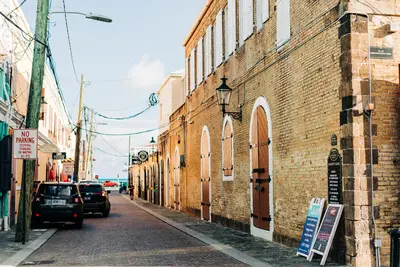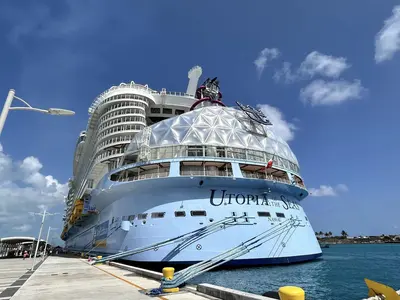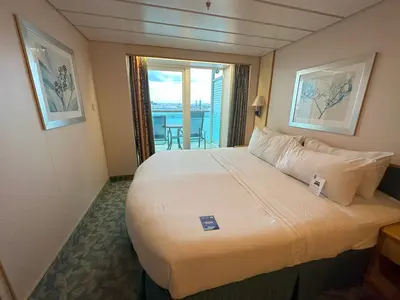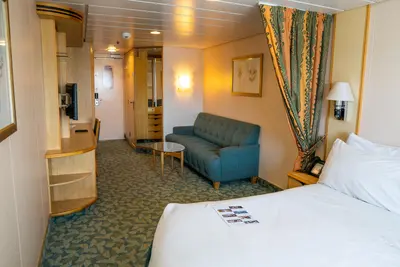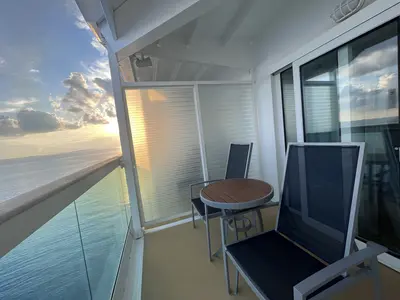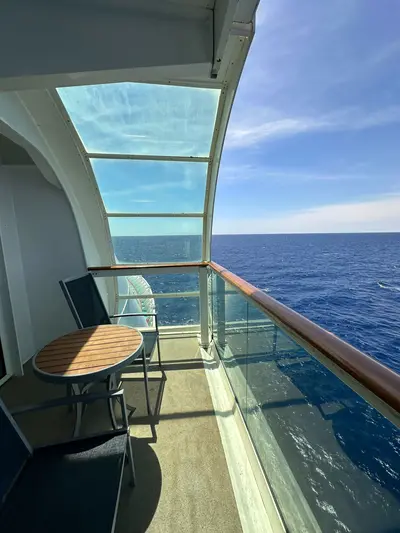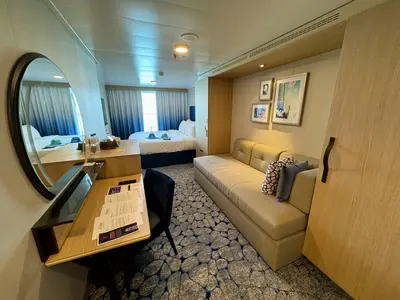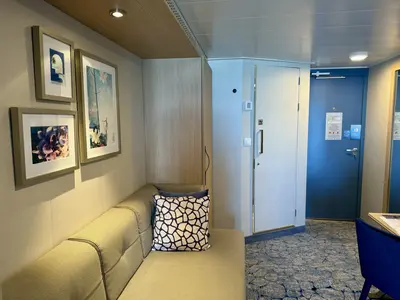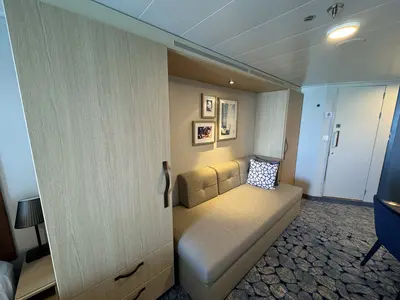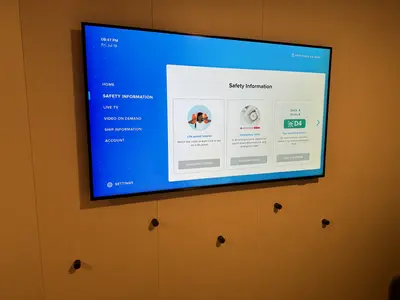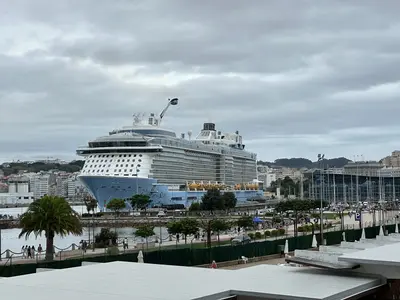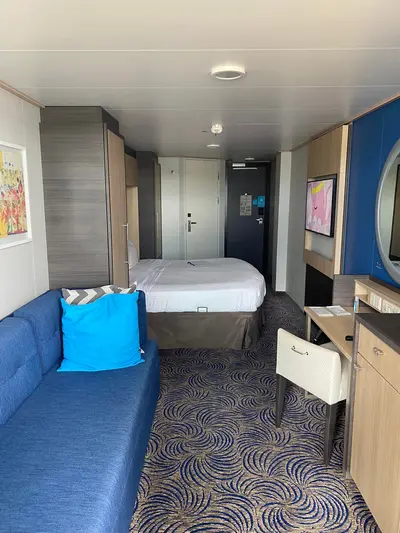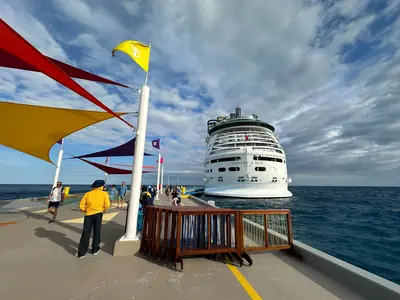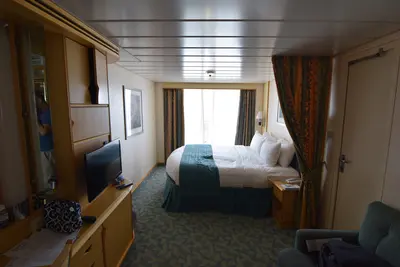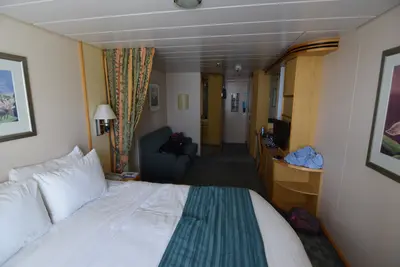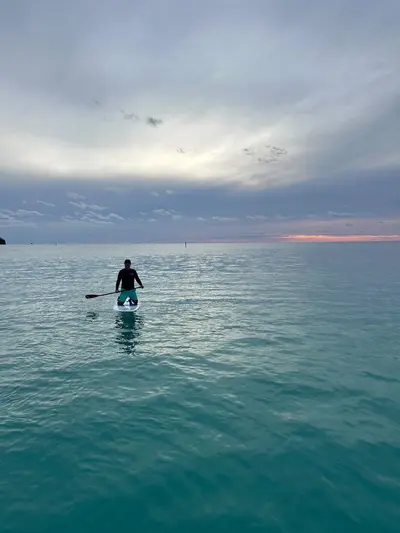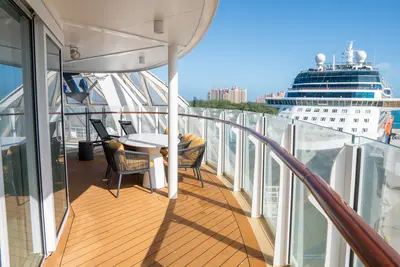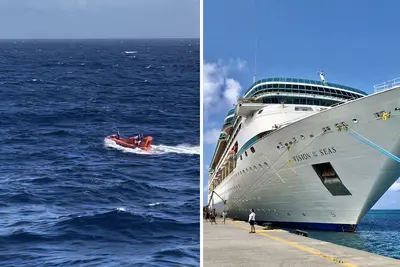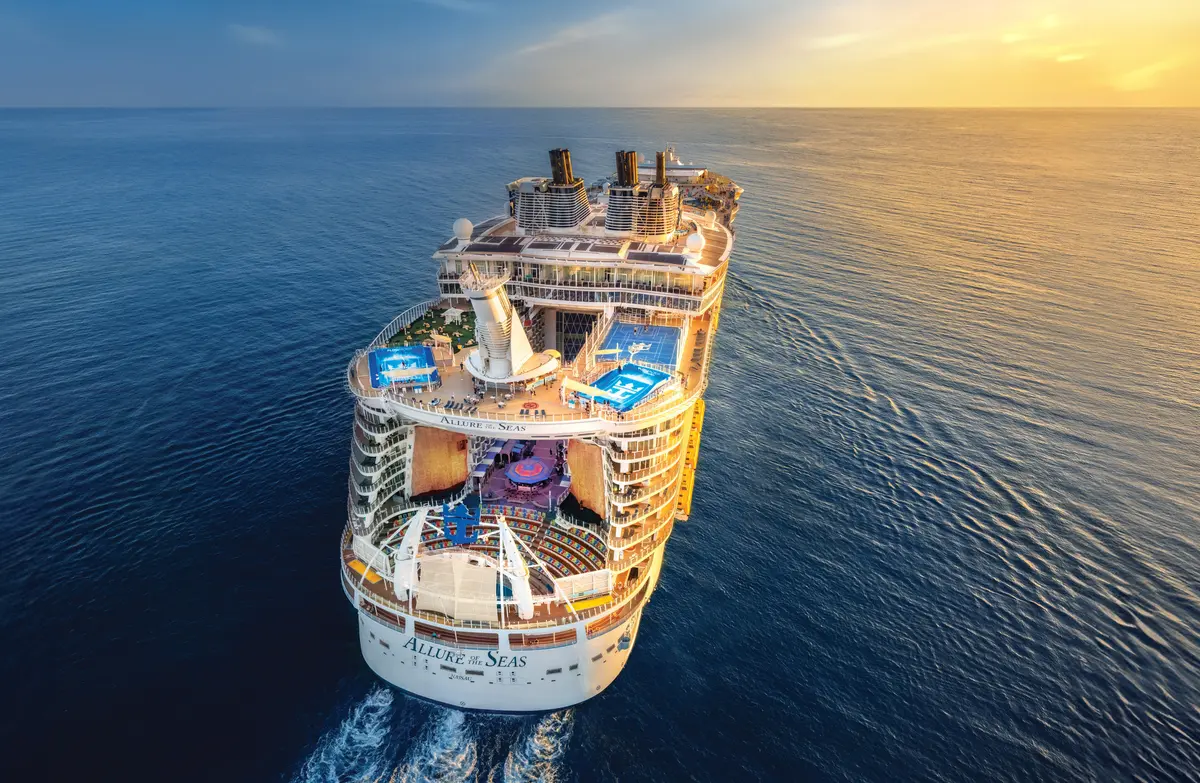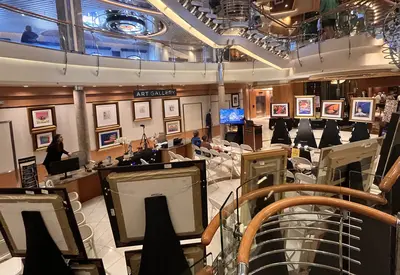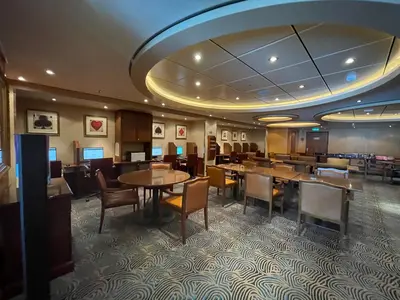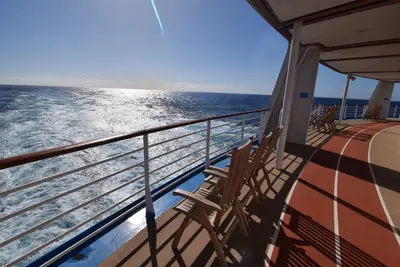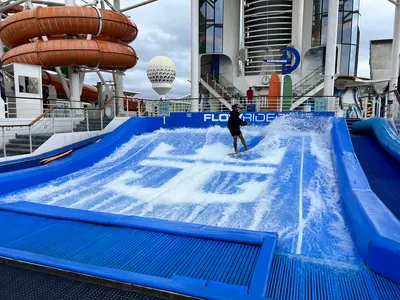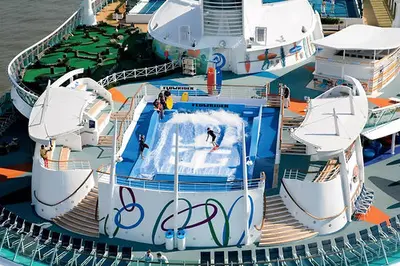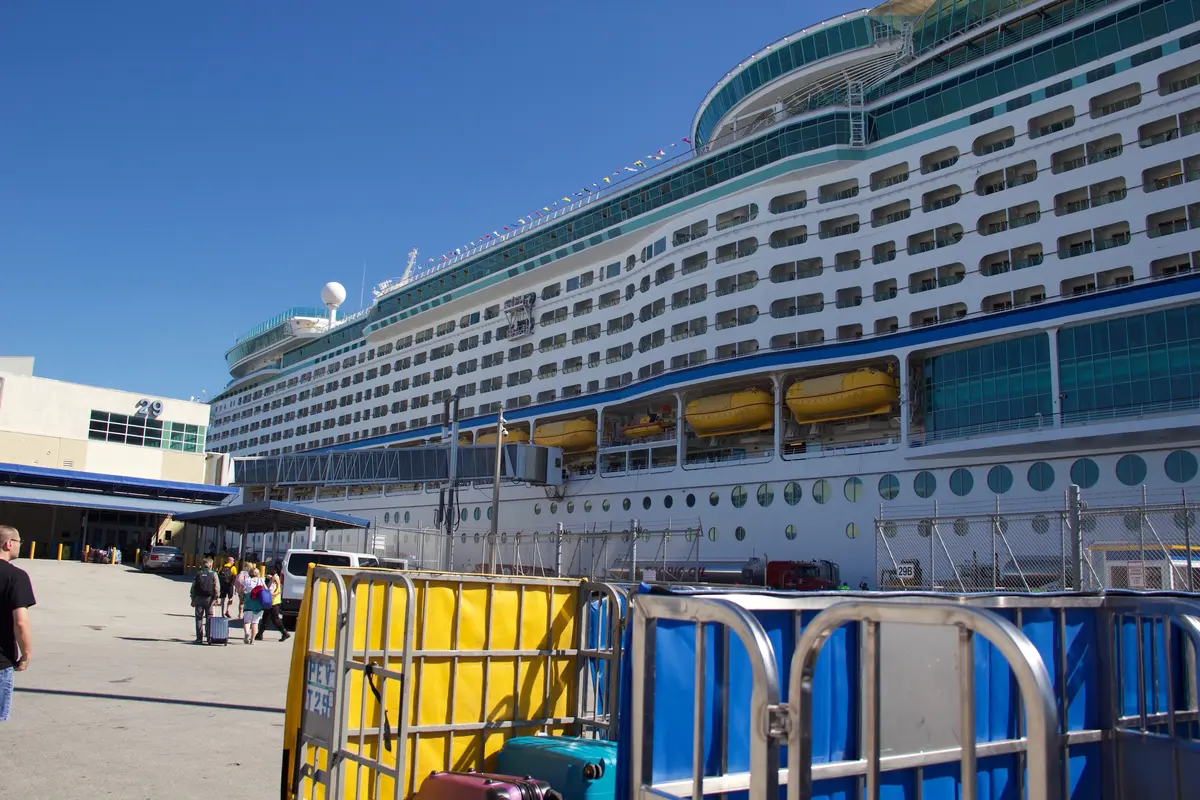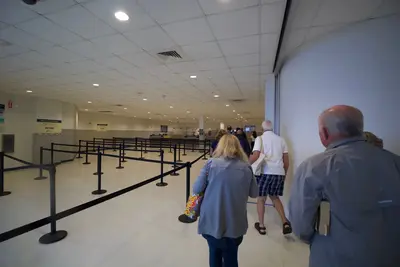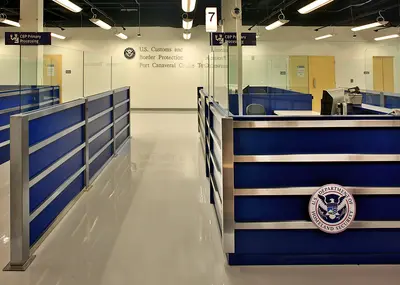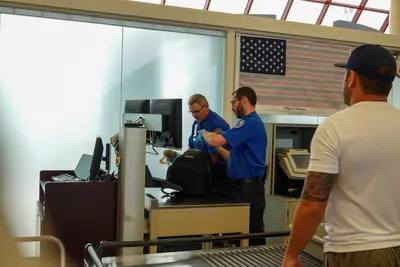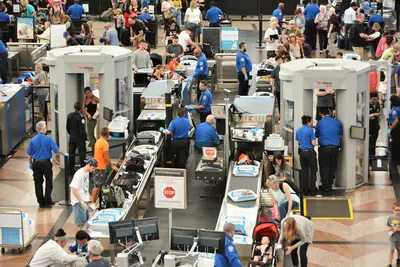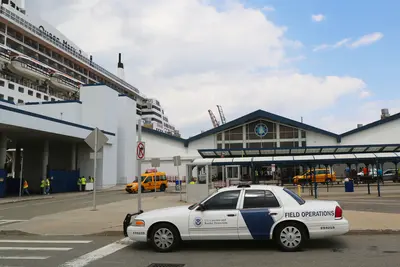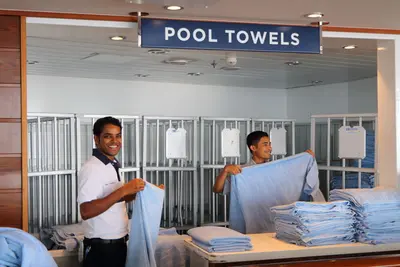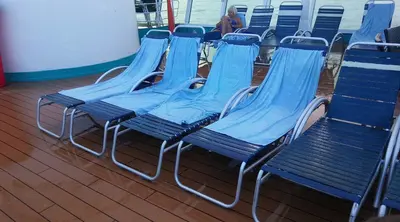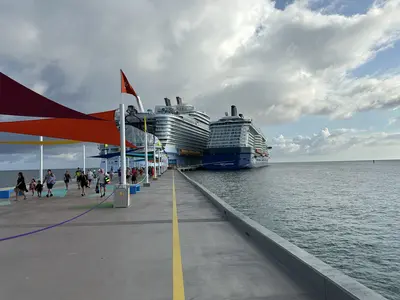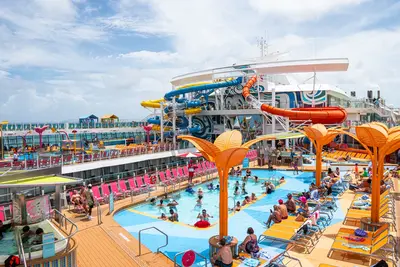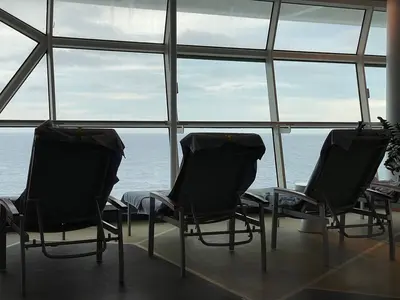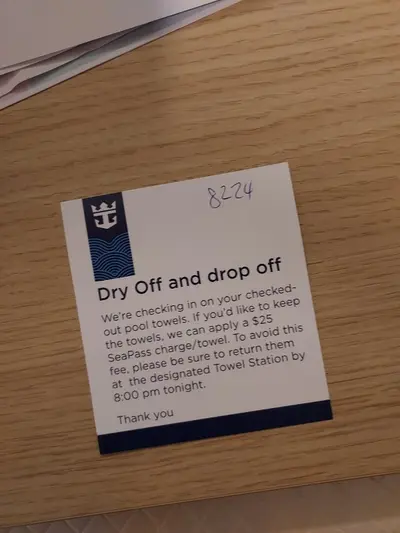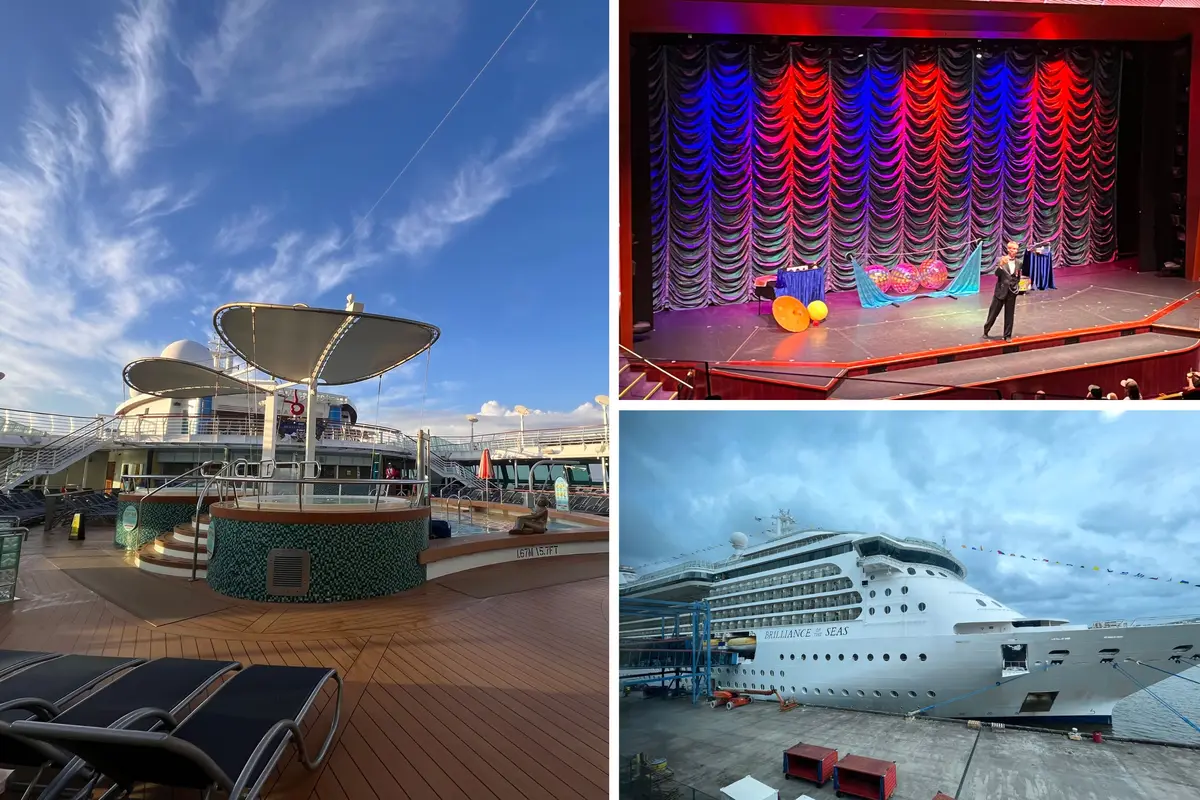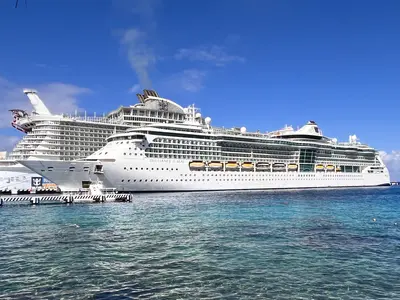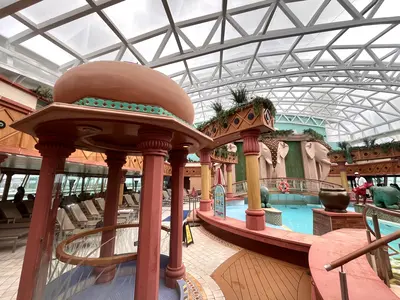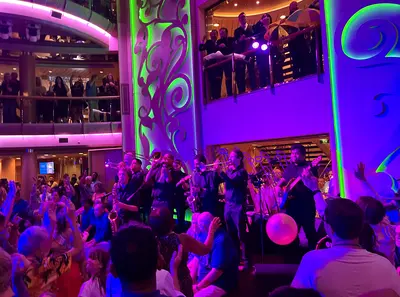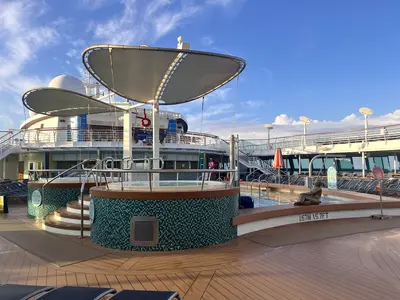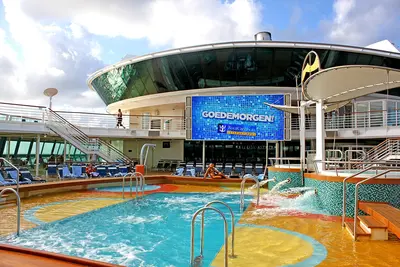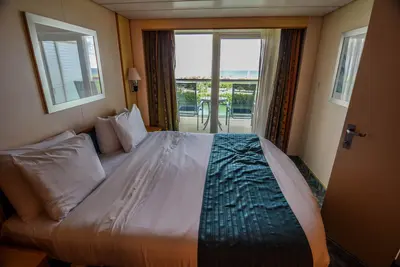The cruise ship safety drill could be even faster and better with important changes, inventor says
In:When Royal Caribbean resumed cruises following the COVID pandemic, the cruise giant introduced e-muster drills that effectively replaced the traditional, in-person muster drills. While this move has allowed for a more efficient, less crowded process, the creator of the digital e-muster argues the true potential of the invention has yet to be realized.

Gone are the days when Royal Caribbean passengers had to cram together in designated muster stations while listening to safety demonstrations. With the introduction of e-muster drills, passengers can complete their safety briefing at their convenience without worrying about baking in the warm Florida sun.
Rather than listen to a crew member relay important safety information, passengers can watch a brief video and listen to the emergency alarm on their mobile app or stateroom television before heading to their assigned muster station to check in with the ship's crew within a specific time frame after embarkation.
Before sail away, a few more announcements are made over the public address system, and the emergency alarm is sounded. However, guests are not required to report to their muster stations and may continue to lounge by the pool, explore the ship, or unpack.
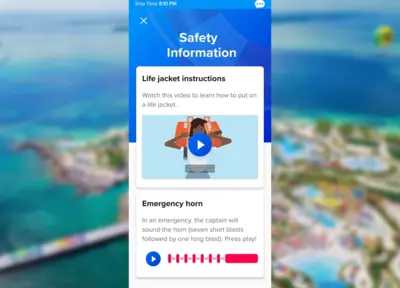
The digital approach was conceived before the pandemic to help better inform cruisers about essential information. Ensuring guests absorbed the safety information during traditional muster drills when crammed together like sardines was difficult.
Not only that but the old muster drill was painstaking for parties with young children and elderly cruisers who often require extra assistance when navigating to their assigned assembly stations.
The completion of the muster drill is required by maritime law. If you choose to not watch the required videos or show up to your assembly station before sail away, your name and stateroom number will be given to crew members who will track you down.

In short, don't be that person. The sooner you complete the drill, the sooner you can get back to enjoying the first day of your cruise vacation.
The e-muster is designed to be 100% digital
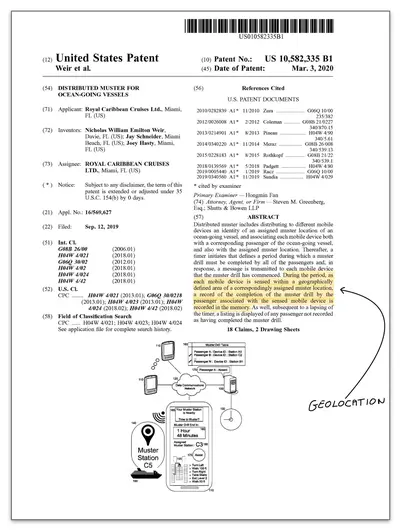
Nick Weir, the former Head of Entertainment for Royal Caribbean International, was the visionary behind the e-muster concept. However, he says there's room for improvement to make the process even more efficient.
"The use of geolocation technology in combination with personal devices and/or wearables, is actually the main event of my big idea. By installing a network of locator beacons around each muster station (similar to the system that is being used to locate and guide the indoor drone swarms that I introduced to Royal Caribbean’s production shows), guests would be able to participate in the eMuster process without the need for crew participation," he explains in an X post.
What does this mean? Instead of requiring tons of crew members to be positioned at muster stations on embarkation day, the digital muster system would leverage guests' personal devices to automatically track and confirm their presence.
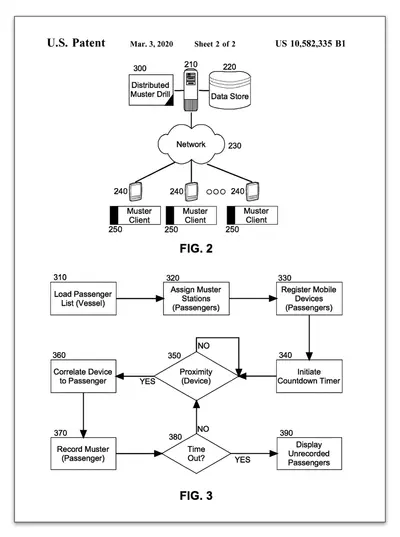
The abstract of the patent, which was filed on March 3, 2020, reads:
"During the period, as each mobile device is sensed within a geographically defined area of a correspondingly assigned muster station, a record of the completion of the muster drill by the passenger associated with the sensed mobile device is recorded in the memory."
"These steps can be performed digitally," Weir continues, "The arrival of a guest at their muster station can be tracked, geolocated and confirmed automatically, without the need for deploying dozens of crew members to do the [time-consuming], repetitive manual work, standing on their feet all day."
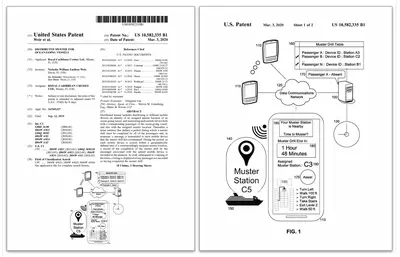
The overall plan still includes one crew member at each station to "tie up any loose ends" and answer questions. First-time cruisers may have extra concerns they want to address before departing, so it makes sense to have a trained crew member available to provide reassurance. However, their presence would likely be phased out as society evolves and technology improves.
"The function of eMuster—as I intended when I created it—is for it to be a fully digital, fully automated system and fully in line with the norms of modern society," he says.
Weir adds that there's the possibility of the guests' presence at their muster stations being confirmed using facial recognition. This would benefit passengers without mobile devices or families with younger children. However, this part of the patent needs to be developed.



